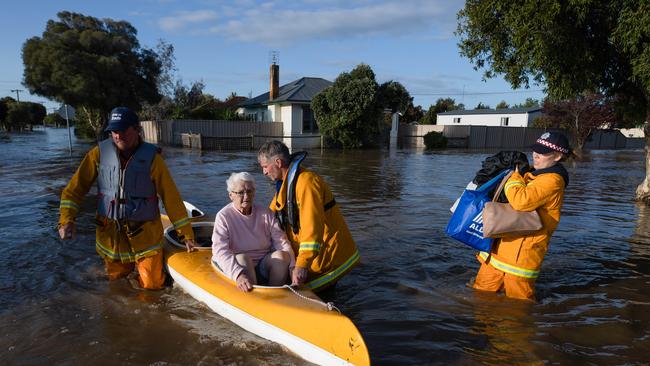Australia ‘just not getting better’ at floor and fire response
Flood-affected residents of Rochester are still waiting for homes to be repairs in the face of ongoing insurance claims, which has left plenty traumatised.
Insurers’ responses to major flood events at the end of 2022 have left people across the east coast traumatised, out of business, and at the mercy of long drawn-out insurance policy payouts.
That’s according to the committee chair of an inquiry into the handling of insurance claims following major flood events across eastern Australia in late 2022.
More than 80 recommendations are outlined in the House of Representatives standing committee on economics report following an inquiry into insurers’ responses to the flood claims.
Committee chair and Labor MP for Fraser Daniel Mulino said the report acknowledged many claim cases were “badly mishandled” with long delays causing “emotional, mental health and financial strain”.
Public hearings into the inquiry, including one at Rochester in Victoria which has been flooded successive times, detailed poor treatment and a range of systemic problems, with long delays and disputes over causation resulting in “emotional, mental health and financial strains for many families”.
Leigh Wilson is a Rochester resident, ex-mayor, and chair of the Community Recovery Committee.
He said more than 1000 homes in Rochester were flooded in the October 2022 floods, with more than 200 homes still to be repaired.
“We’re just not getting better at this, as a nation,” Mr Wilson
The report made 86 recommendations, including recommending the federal government consider measures to improve the affordability of flood insurance for existing policy holders with high flood-risk properties.
Mr Wilson said insurers and financial institutions needed to work more directly with communities, along with better mitigation measures.
“The widespread pain with such a community-wide event, with some many people going through the same sorts of problems, there’s not enough support to navigate through, and come out the other side,” Mr Wilson said.
“When you have such an event, and the level of trauma associated with that, it puts everyone on the back foot and it’s harder to work through.”
NSW lawyer and farmer Kirsty Evans has spent more than 250 hours working pro bono on a number of claim denials for individuals and businesses in Molong.
The result of her efforts is more than $1 million being returned to people after initially receiving a rejection from their insurers.

“In some cases, 100 per cent of family incomes are gone, the longer the insurer drags on the claim,” Ms Evans said.
“We had another client who after the flood event lost everything … she ended up going through trauma counselling not because of the flood, but because of the denial. We had to help her rebuild from scratch to help get her policy.”
A number of recommendations addressed mitigation, including development of a climate financing framework relating to government mitigation and adaptation funding, and that the General Insurance Code of Practice require insurers consider relevant property-level mitigation measures.




